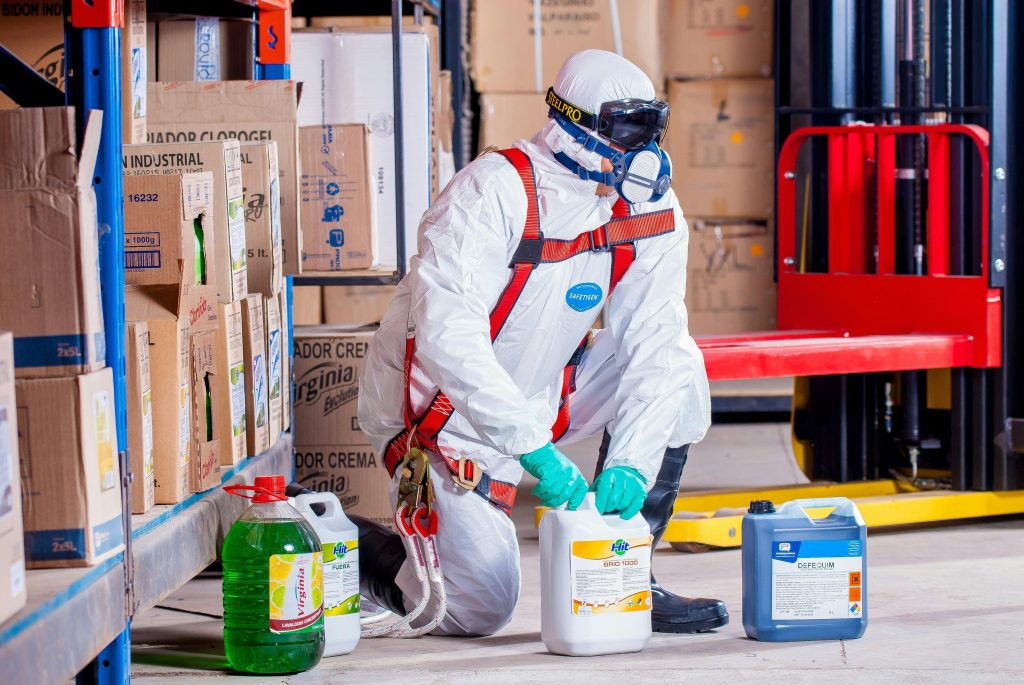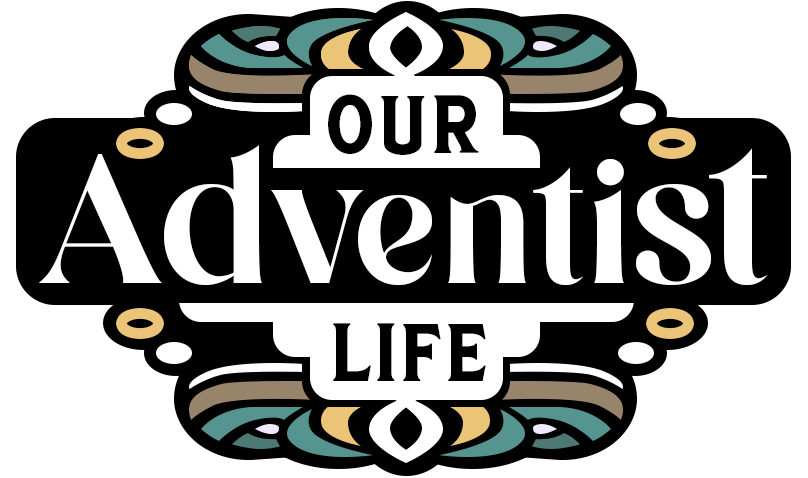With daily challenges and responsibilities, Christians often seek guidance from the Bible for living and life problems that align with their faith. But what does the Bible say about keeping your body clean? This question is especially pertinent for families striving to live a life rooted in Biblical principles.
One aspect that resonates deeply within the Christian doctrine is the concept of cleanliness. Cleanliness, often perceived as a mundane task, holds profound spiritual significance in the Bible.
Wanting to wipe clean your mistakes and problems in a world that can feel dark and stained. Being born again and clean of all sin. Concepts reinforced by Bible verses about washing yourselves clean (Isaiah 1:16) and what needs to be washed our feet, whole body, or our spirit (John 13:10).
This article will offer insights that can help believers navigate their everyday family life with a sense of purity and devotion.
- Biblical Foundations of Cleanliness
- Physical Cleanliness and Spiritual Purity
- Lessons from the Seventh-day Adventist Church
- Practical Tips for Clean Living
- Bible Verses About Cleanliness
Let’s learn about these below.

Biblical Foundations of Cleanliness
The Bible is replete with verses and stories that emphasize the importance of cleanliness, both in a physical and spiritual sense. In Leviticus 15:13 KJV, the Lord speaks to Moses about the purification process, stating, “And when he that hath an issue is cleansed of his issue; then he shall number to himself seven days for his cleansing, and wash his clothes, and bathe his flesh in running water, and shall be clean.” This verse not only highlights the need for physical cleanliness but also symbolizes the process of spiritual purification.
Similarly, in 2 Corinthians 7:1 KJV, Paul urges, “Having therefore these promises, dearly beloved, let us cleanse ourselves from all filthiness of the flesh and spirit, perfecting holiness in the fear of God.” Here, the connection between a clean body and a pure spirit is explicitly made, suggesting that maintaining physical cleanliness is intrinsically linked to spiritual purity.
Moreover, the story of Naaman’s healing in 2 Kings 5 showcases the transformative power of water and cleanliness. Naaman, afflicted with leprosy, is instructed by Prophet Elisha to wash in the Jordan River seven times. His obedience leads not only to physical healing but also to a newfound faith in God. This narrative beautifully illustrates how acts of physical cleanliness can lead to faith, spiritual revelation, and rebirth.
These scriptural references lay a foundational understanding of how cleanliness is perceived in the Bible – not just as an act of maintaining personal hygiene but as an integral part of living a holy and devoted life.
Physical Cleanliness and Spiritual Purity
The Biblical perspective on cleanliness transcends beyond mere physical hygiene, intertwining deeply with spiritual well-being. In essence, the state of our physical bodies often reflects our spiritual health. The book of James 4:8 KJV advises, “Draw nigh to God, and he will draw nigh to you. Cleanse your hands, ye sinners; and purify your hearts, ye double minded.” This verse poignantly illustrates the parallel between the act of physically cleaning oneself and the process of spiritual purification.
Physical acts of cleanliness, such as bathing and maintaining personal hygiene, are more than routines; they are symbolic gestures of preparing oneself to stand pure and blameless before God. The concept of washing, particularly with water, holds significant importance in the Bible. It symbolizes the washing away of impurities and the renewal of the spirit. In John 13:10 KJV, Jesus says, “Jesus saith to him, He that is washed needeth not save to wash his feet, but is clean every whit: and ye are clean, but not all.” Here, Jesus uses the metaphor of bathing to convey the concept of being spiritually clean.
Furthermore, the Bible often uses the imagery of healing and purification to describe the transformative power of embracing a life of cleanliness. In spiritual terms, being clean is akin to being free from sin and contaminants that can taint the soul. Thus, maintaining a clean body is not only a matter of physical health but is also indicative of a commitment to spiritual holiness and purity.

Lessons from the Seventh-day Adventist Church
The Seventh-day Adventist Church offers rich theological insights into the concept of cleanliness, viewing it as an essential aspect of maintaining a healthy body and a pure spirit. Adventists believe that the body is the temple of the Holy Spirit, and thus, it should be treated with the utmost respect and care. Ellen G. White, a co-founder of the church, emphasizes this in her writings on health reform, stating, “Cleanliness is next to godliness.” A phrase first credited to John Wesley, the founder of Methodism. This sentiment echoes the Biblical principle that our physical bodies and spiritual lives are interconnected. But Mrs. White also said godliness should be first, then consider cleanliness if it is an issue.
During her time in the 1870s cleanliness and hygiene were much more problematic and not as nearly as well practiced. With disease and other issues much more common. This is why she led the Adventist church in supporting health reform.

Adventists advocate for a holistic approach to health, encompassing both physical and spiritual aspects. They emphasize the importance of a healthy diet, regular exercise, and adequate rest, all of which contribute to maintaining a clean and healthy body. Additionally, the church encourages practices such as regular bathing and personal hygiene as a reflection of inner purity and respect for the body as a creation of God.
The Adventist understanding of cleanliness extends beyond personal hygiene to include environmental stewardship. They believe that caring for the Earth and living in a clean, healthy environment is a form of worship and an expression of gratitude to God for His creation. This holistic view of cleanliness and health is deeply rooted in Biblical teachings and reflects the church’s commitment to living out the principles of the Bible in all aspects of life.
Practical Tips for Clean Living
Incorporating the principles of cleanliness into daily life can have a profound impact on both physical well-being and spiritual growth. Here are some practical tips inspired by Biblical teachings to help maintain a clean and healthy lifestyle:
- Daily Hygiene: Regular bathing, washing hands, and maintaining personal cleanliness are simple yet powerful practices. They not only prevent the spread of germs but also serve as a reminder of the need for spiritual cleanliness.
- Healthy Eating: Opt for a diet rich in fruits, vegetables, and whole grains. A clean whole food and organic (when possible) diet, free from potentially harmful food additives, supports both physical health and spiritual clarity.
- Regular Exercise: Physical activity is not only good for the body but also uplifts the spirit. It’s a form of honoring the body, which is considered the temple of the Holy Spirit. Simple movement and low to moderate exercise helps the body process and remove toxins, and boost our metabolism.
- Drinking Water: It is essential to life. We need to drink water to live, but we can also use healthy hydration practices to help our body be clean. Drinking water aides in the removal of waste products and toxins. Helping all of your bodies systems, like your kidney function and blood circulation.
- Spiritual Practices: Engage in regular prayer, thankfulness, meditation, and Bible study. These practices cleanse the mind and heart, drawing you closer to God.
- Love Your Neighbors: Everyday practice the act of loving everyone around you with kindness. Treat them as you would want to be treated. Help those in need and speaking no corrupting talk.
- Environmental Care: Keep your living and working spaces clean and orderly. It is harder to keep your body clean if your environment is dirty. Respect for the environment is a reflection of your respect for God’s creation.
- Protect Yourself: Keeping clean can also mean avoiding potentially harmful and toxic chemicals. So while we may need chemicals to clean, we should try to use more natural options or wear protection. Similarly, take care with any personal hygiene products we use. That they are safe to use, avoiding potentially harmful additives and chemicals in our products.
By integrating these practices into everyday life, Christians can live out the Biblical teachings on cleanliness, benefiting both their physical health and spiritual journey.

Bible Verses About Keeping Your Body Clean
The Bible offers a wealth of verses that highlight the importance of keeping your body clean. These scriptures provide guidance and insight into how cleanliness is viewed in the eyes of God:
- Psalm 51:7 KJV: “Purge me with hyssop, and I shall be clean: wash me, and I shall be whiter than snow.” This verse symbolizes the desire for spiritual cleansing and purity.
- Ephesians 5:26 KJV: “That he might sanctify and cleanse it with the washing of water by the word,” Here, the cleansing power of the word of God is likened to water, reinforcing the link between physical and spiritual cleanliness.
- 1 John 1:9 KJV: “If we confess our sins, he is faithful and just to forgive us our sins, and to cleanse us from all unrighteousness.” This verse speaks to the spiritual aspect of cleanliness, emphasizing God’s role in purifying us from our sins.
- 2 Corinthians 7:1 KJV: “Having therefore these promises, dearly beloved, let us cleanse ourselves from all filthiness of the flesh and spirit, perfecting holiness in the fear of God.” This scripture clearly links the cleanliness of the body and spirit as part of living a holy life.
- Revelation 7:14 KJV: “And I said unto him, Sir, thou knowest. And he said to me, These are they which came out of great tribulation, and have washed their robes, and made them white in the blood of the Lamb.” The imagery here speaks to the ultimate purification through Christ.
- John 13:1-17 KJV: “…Jesus saith to him, He that is washed needeth not save to wash his feet, but is clean every whit: and ye are clean, but not all...” Jesus discusses with his followers the meaning of washing their feet before Passover. Even if Jesus washed all of Simon Peter, his hands and head, that wasn’t what made him clean or even what Jesus was trying to show them. Showing they misunderstood the act of ritual cleanliness and serving one another with loving pure actions.
- 1 Corinthians 3:16 KJV: “Know ye not that ye are the temple of God, and that the Spirit of God dwelleth in you?” This explains how our soul and spiritual well-being are not separate from our physical body. And to be of God, His follower, means our body is the church and temple of God. We “house” God inside of us as part of our relationship.
- 1 Corinthians 6:19-20 KJV: “What? know ye not that your body is the temple of the Holy Ghost which is in you, which ye have of God, and ye are not your own? For ye are bought with a price: therefore glorify God in your body, and in your spirit, which are God’s.” This repeats and emphasizes the importance of caring for our bodies.
- John 15:3 KJV: “Now ye are clean through the word which I have spoken unto you.” We are to understand what truly makes us clean in the eyes of God isn’t soap, water, or clean white robes. It is whether our actions or “fruit” are abiding in God.
These verses are not only instructive but also offer comfort and assurance that cleanliness, both physical and spiritual, is attainable and valued in the Christian faith.
The teachings of the Bible illustrate that maintaining a clean body is not just about personal hygiene but is deeply connected to spiritual purity and health. By adopting practical habits of cleanliness and reflecting on pertinent Bible verses, believers can enhance their spiritual journey and family life. Ultimately, embracing cleanliness as outlined in the Bible helps in nurturing a closer relationship with God, fostering a life that honors God in both body and spirit.




Leave a Reply